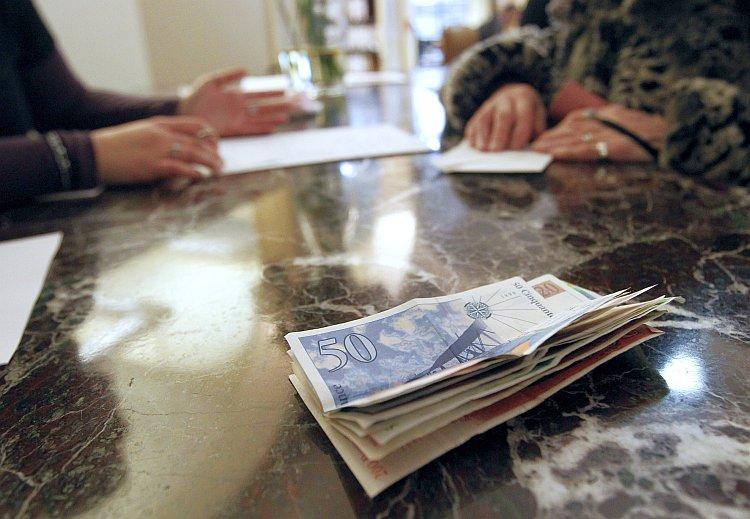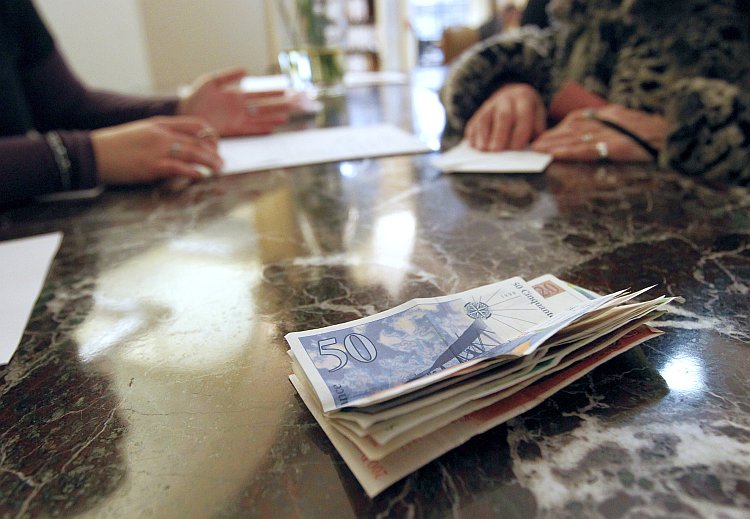Voices predicting the disappearance or at least partial breakup of the euro are getting louder, especially after the latest election results from France and Greece.
Countries that need to be bailed out are screaming at the top of their voices that austerity programs are a pipedream and not acceptable to their psyche. On the other hand, countries that are asked to provide the funds to prevent the possible bankruptcy of a country such as Greece refuse to support a lifestyle they have conscientiously put aside and have themselves accepted economic austerity.
“There is an attitude among some EU member states not in crisis, that it is simply unfair to bail out those states that have lived beyond their means for so many years,” according to a recent article on the Seeking Alpha website.
Reasoning Out the Reckoning
“In the case of the euro, you have a European Central Bank, but you don’t have a European treasury ... The lack of a European treasury is the missing piece of the puzzle. Without it, the ECB is limited in the assistance it can provide to eurozone member states,” informed the Seeking Alpha article.
A partial or complete demise of the euro no longer seems to be implausible, given the structure of the European Union. America has a central bank, the Federal Reserve system, as well as the U.S. Department of Treasury, while there is no Treasury in the European Union (EU), but only a European Central Bank (ECB).
A treasury generally has responsibility for printing, receiving, holding and managing monies, as well as disbursing them.
Besides, the ECB has too many masters that have different objectives, so it is quite restricted in how much it can do to address the bailing out of EU countries.
“In theory, the ECB could bail out those member states burdened with excessive debt by printing more money. However, that would require the approval of all 27 member states (not just the 17 eurozone [countries] that use the euro as their national currency) that make up the EU,” said the Seeking Alpha article.
At present, 17 nations are using the euro, up from the 11 states that replaced their existing currency when the euro was launched in 1999. But, it is not necessary to accept the euro as currency when becoming a member in the EU.
“The euro is not the currency of all EU member states. Two countries (Denmark and the United Kingdom) agreed an ‘opt-out’ clause in the treaty exempting them from participation, while the remainder (many of the newest EU members plus Sweden) have yet to meet the conditions for adopting the single currency,” according to the European Commission website.
Fighting Austerity Programs
“It turns out that austerity is extremely unpopular. But if newly elected politicians all over Europe begin rejecting austerity, this puts Germany in a very difficult position. Should Germany be expected to indefinitely bail out all of the members of the eurozone that choose to live way beyond their means,” said Michael T. Snyder, an attorney, on his Economic Collapse website.
Angela Merkel, German chancellor, has made it abundantly clear that any changes in the austerity program required for further disbursements of funds by Germany are not negotiable. Just last month, Merkel had an ally in France’s Nicolas Sarkozy, the outgoing French president, who was voted out of office recently.
The incoming president won on a political platform that demands a new, less austere program be negotiated for receiving funds and thus put his foot in his mouth over something he truly has no control over.
“Francois Hollande, the new French president, has declared that the financial world is his ”greatest enemy.“ ... He may regret making that statement,” said the Economic Collapse article.
According to Snyder, France is already in financial difficulty and thus would be unable to help any other European nation. Also, if France backs off the austerity route that was initiated under Sarkozy and can’t get its debt under control, there is a high probability of it going the same way as Greece.
“Germany is holding all of the cards, but much of the rest of the eurozone does not seem afraid to defy Germany at this point,” said Snyder.
But, if the austerity plan is not accepted, Snyder and other experts are certain that if Germany decides to unload the euro as its currency, the euro would breathe its last breath and the countries that are on the brink of default, such as Greece, Spain, and Portugal, would go bankrupt.
“If Germany pulled out of the euro tomorrow, the euro would absolutely collapse, bond yields for the rest of the eurozone would skyrocket to unprecedented heights, and without German bailout money troubled nations such as Greece would be headed directly for default,” said Snyder.
Preparing to Dump the Euro
“While the second Greek bailout may or may not be complete (depending on whether we get a credit event as a result of it), Germany can and will walk from the euro if it needs to. This is the unforeseen black swan everyone is ignoring,” said an article on the Zero Hedge website.
Snyder concurred and said, “There have been persistent rumors that Germany has been very quietly preparing to leave the euro,” said Snyder.
Germany’s top political team is fully aware that German voters will not agree to bailouts of any other country than Greece, such as Spain or Portugal, given that Germany already pays the largest portion of the bailout funds.
“This is why Germany has decided to play hardball with Greece. It’s also why Germany has put into place a contingency plan that would permit it to leave the euro if it had to,” said an article on the Zero Hedge website.
According to Zero Hedge and Snyder, Germany already has in place a plan that would facilitate the dumping of the euro.
In October 2011, starting with Dr. Philippa Malmgren, a former economics adviser to George W. Bush, the rumors that Germany’s Central Bank had ordered the printing presses to print the German Deutsche mark, the former currency, spread like wildfire. No denial or concurrence to that issue can be found inside or outside of Germany.
Also, during the past six months, Germany has put legislation into place that would allow it to opt out of the euro without losing its membership in the European Union. Then, German legislation allows German banks to get rid of any government bond based on the euro.
What has great importance is that Germany restructured the Special Financial Market Stabilization Fund (SOFFIN), which would be used if large banks, considered too big to fail, were on the verge of going bankrupt. SOFFIN will receive 400 billion euros ($521 billion), of which 80 billion euros ($104.2 billion) are to be used to recapitalize German banks if needed, something that might be necessary if Germany should dump the euro.
Lastly, “Germany has put a 480 billion euro ($625.2) firewall around its banks. It can literally pull out of the euro any time it wants to. ... Germany could very easily leave the euro. ...
This is the black swan no one is talking about. If Germany bails on the euro, the EU will collapse. It will be Lehman Brothers times 10 if not worse,” according to the Zero Hedge article.
The Epoch Times publishes in 35 countries and in 19 languages. Subscribe to our e-newsletter.






